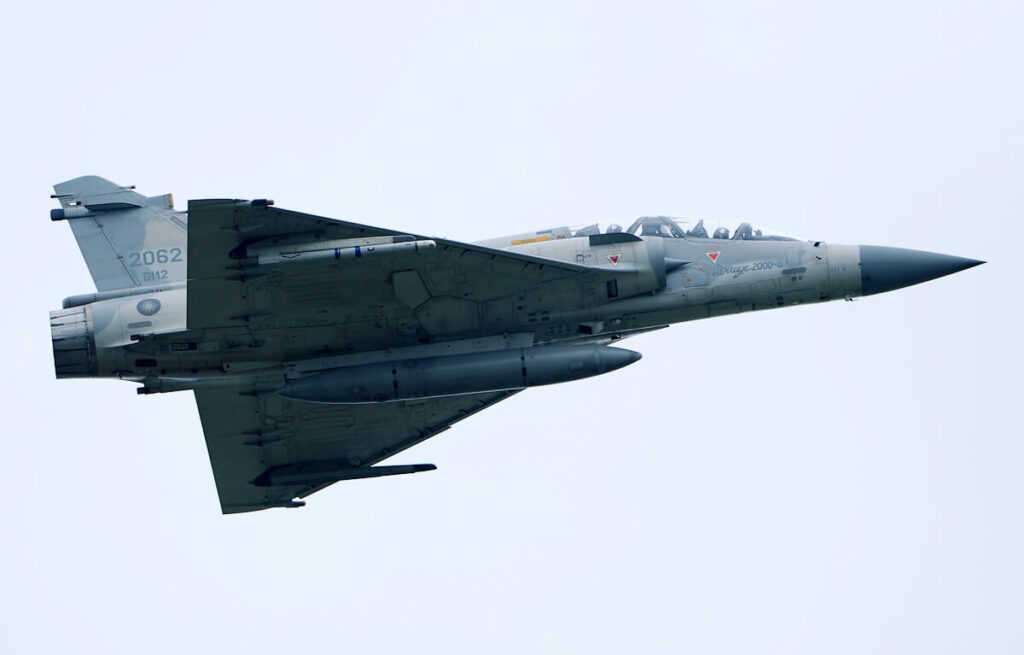Taiwan is considering extending the service life of nine of the Dassault Mirage 2000 operated by the Republic of China Air Force (ROCAF).
The island country acquired a fleet of 60 Dassault Mirage 2000-5 fighter jets in 1992, among which were 48 single-seat interceptors and 12 twin-seat trainers.
The aircraft entered service with the ROCAF in 1997 and since then, it has represented an important component of the island’s airspace sovereignty defense. However, they are now entering a later stage of their life cycle, leading to higher maintenance and repair costs compared to other ROCAF aircraft.
Over its 26 years of service, the Mirage 2000 fleet has encountered six crashes, leading to the loss of five pilots. This 10% attrition rate for a single-engine aircraft fleet over such a lengthy period is commendable, particularly considering the high level of engagement faced by Taiwanese fighters.
The Taiwan government has reported a significant increase in its air force activity, with a 129% jump in 2020. This surge in activity is primarily attributed to the repeated and regular intrusions of Chinese military planes into Taiwan’s air defense identification zone (ADIZ).
Yet the most recent crash, which took place on March 14, 2022, triggered a public debate in the country about the safety of the Mirage 2000 and increasing operating costs due to the low availability of parts.
In a briefing held on June 13, 2023, Colonel Sun Li-fang, the spokesperson for Taiwan’s military, affirmed that the Mirage 2000 fleet met the ‘availability’ or ‘mission capable’ standards issued by the ministry, dismissing rumors of decommissioning.
To evaluate the possibility of extending the service life of the fighters, Taiwan has enlisted the help of their manufacturer, the French company Dassault Aviation. A budget of NT$150 million (approximately US$4.77 million) was earmarked for the evaluation, scheduled to be completed by July 2026.
Nine two-seater aircraft are being evaluated for potential service life extension, with the aim of extending their operational capabilities by another 20 years. The decision to focus on twin-seat airframes is driven by the strategic advantage of utilizing them for both training purposes and operational missions, according to Focus Taiwan.
That fleet would act as a stopgap solution while Taiwan is awaiting the deliveries of 66 new Lockheed Martin F-16V fighters, ordered In August 2020, to begin. The delivery of the first fighter was expected in 2023. However, due to supply chain disruptions and software problems, it was postponed to late 2024. Full delivery is still slated for 2026.
Read more: Taiwan Mirage 2000 fighters remain operational despite concerns: ROCAF

